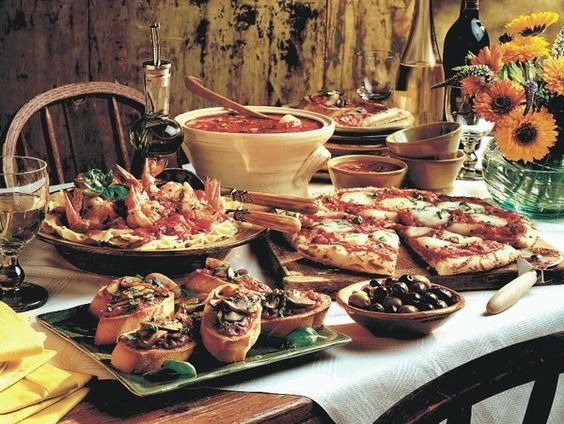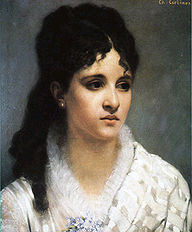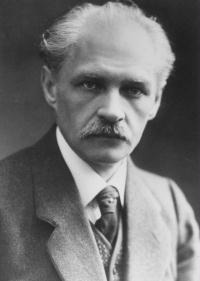 Brixi
Brixi
In Moravian folklore, the “Brixi” is not actually a river. Rather it describes a mythical creature that secretly rises from the Morava River during the summer solstice to take a long bath in the moonlight. According to local lore, only people with a clean conscience and pure heart will be able to catch a glimpse of the creature. Maybe that’s the reason nobody has ever seen it! Actually, František Xaver Brixi (1732-1771) was a Czech classical composer of the 18th century. Born in Prague, Brixi was appointed Kapellmeister of St. Vitus Cathedral at age 27, and he held that position until his early death. He composed roughly 500 works, including cantatas, oratorios, chamber and orchestral compositions. Brixi’s music stands at the junction between the Baroque and Classical style and features clearly articulated formal structures and a fresh approach to rhythm and harmony.
Frantisek Xaver Brixi: Harpsichord Concerto in G major
Vycpálek
The Vltava (Moldau) is the longest river in the Czech Republic. Originating in the Bohemian Forest, it runs for 430 kilometers across Bohemia and through Prague before merging with the Elbe River. The Vycpálek is a small tributary that joins the Czech national river just south of Prague. Actually it is not, as Ladislav Vycpálek (1882-1969) was an eminent Czech composer and violist active in the first half of the 20th century. Known for his expressive musical style, Vycpálek composed mainly vocal and choral works. Drawing inspiration from folk poetry and infusing humanistic philosophical reflections, he composed three cantatas, among them the Czech Requiem of 1940. Reflecting on the tragedy of war, the work draws on three sacred texts and was long suppressed by communist authorities.
Ladislav Vycpálek: Czech Requiem Op. 24, “Vanity of Vanities”
Vranický
Vranický or Wranitzky is not a body of water but refers to the famous 18th-century Czech violinist and composer Pavel or Paul Vranický (1756-1808). Born in Moravia, Vranický originally studied theology before moving to Vienna to seek his musical fortune. He was highly respected by Mozart and Beethoven, and became an assistant to Haydn. He even fashioned an approved arrangement of The Creation for string quartet. By 1797 Vranický was Kapellmeister of the private orchestra of Prince Lobkowitz, and appointments at the Imperial Court Orchestra and the Theater an der Wien soon followed. Above all, Vranický was a prolific composer. He wrote 10 operas, 44 symphonies, 73 string quartets and a substantial amount of other orchestral and chamber music. It was his opera Oberon, the Fairy King of 1789 that inspired Schikaneder to write the libretto of The Magic Flute for Mozart in 1791!
Pavel Vranický: Symphony in C minor, Op. 11
Rovenský
The Krkonoše mountain range features large alpine meadows dotted with picturesque timber cottages. Mount Sněžka is the highest point of elevation, and it gracefully towers over Lake Rovenský, which in turn gives rise to numerous gentle streams and murmuring waterfalls. By now you are probably highly suspicious of my flowery description, but rest assured that the Krkonoše range and Mount Sněžka do actually exist. Lake Rovenský, however, is my invention as the name designates the Czech baroque composer and organist Václav Karel Holan Rovenský (1644-1718). Rovenský worked in a variety of musical positions and even made a pilgrimage to Rome. His greatest claim to fame is the Capella Regia Musicalis published in Prague in 1693. This special hymnbook contains 772 monophonic and polyphonic chants with occasional instrumental accompaniment in the Czech language.
Václav Karel Holan Rovenský: “Oh God, how did I deserve”
You May Also Like
-
 Italian Dishes or Classical Composers? Today’s quiz looks at Italy, the veritable land of music and delicious food!
Italian Dishes or Classical Composers? Today’s quiz looks at Italy, the veritable land of music and delicious food! -
 French Geography or Classical Composers? Picturesquely located on the banks of the Loire River, the settlement of Chédeville has been famous for its cultivation of wine since prehistoric times.
French Geography or Classical Composers? Picturesquely located on the banks of the Loire River, the settlement of Chédeville has been famous for its cultivation of wine since prehistoric times. -
 German Cities or Classical Composers? The Baltic Sea is sometimes referred to as the “Mediterranean of the North.” For centuries it has been a vital thoroughfare for trade and travel across ethnic and religious borders.
German Cities or Classical Composers? The Baltic Sea is sometimes referred to as the “Mediterranean of the North.” For centuries it has been a vital thoroughfare for trade and travel across ethnic and religious borders.
More Anecdotes
- Bach Babies in Music
Regina Susanna Bach (1742-1809) Learn about Bach's youngest surviving child - Bach Babies in Music
Johanna Carolina Bach (1737-81) Discover how family and crisis intersected in Bach's world - Bach Babies in Music
Johann Christian Bach (1735-1782) From Soho to the royal court: Johann Christian Bach's London success story - A Tour of Boston, 1924
Vernon Duke’s Homage to Boston Listen to pianist Scott Dunn bring this musical postcard to life



